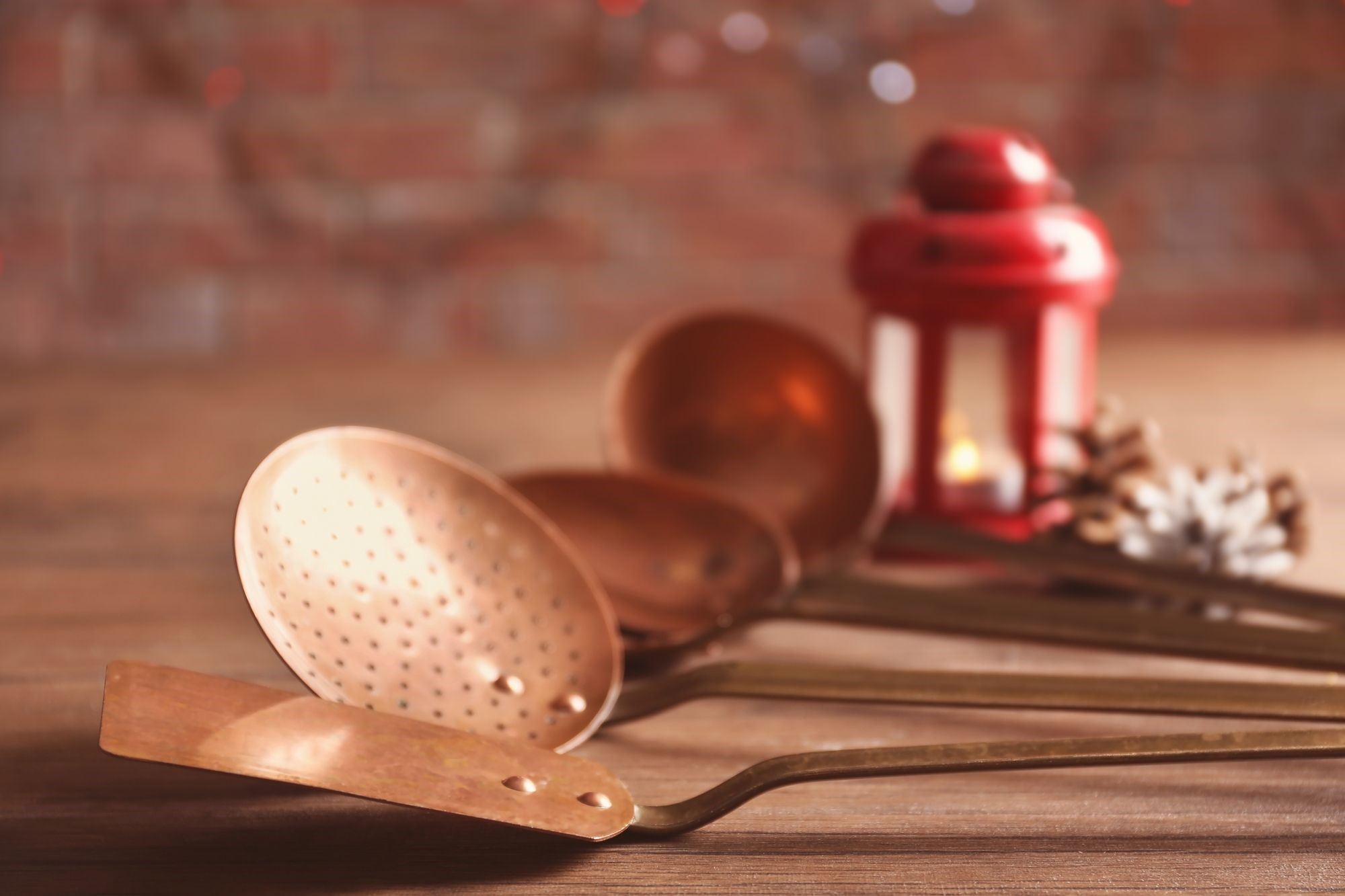If you grew up using kitchen utensils made of tin, clay, or aluminum, it’s time to be aware of an alloy that’s been utilized for many years in other cultures because of its benefits. For thousands of years, the Thatheras of Jandiala Guru in Punjab applies a traditional technique in making brass and copper utensils. They procure brass sheet metal and hammer it into curved shapes to produce bowls, water pots, and cookware. Brass, an alloy of zinc and copper, is a great alternative to common utensil materials for many reasons.
Reasons to Choose Brass for Creating Utensils
Brass is widely regarded for its natural beauty. It has a wide range of stunning colors from gold to brown. Adding 1% manganese to brass can produce a chocolate color. If your clients like buying attractive things, they will love brass utensils. Brass sheet metals can be turned into lovely jugs, cups, plates, forks, and spoons. Because you can buy malleable brass, you can etch, write, or stamp on it. The designs of your brass utensils are literally endless!
Durability is one of the best characteristics of brass. Brass is corrosion resistant. It means your utensils will not be prone to rusting or staining for a long time unlike when you’re using tin, iron, or steel. Aluminum utensils may not rust but they are prone to corrosion, while clay and earthenware utensils break easily. Among these materials, brass is the most long-lasting.
Many customers opt for brass utensils due to their microbial properties. Dr. Rob Reed, a microbiologist in Tyne, UK, compared the number of a culture of Escherichia coli (E. coli) in brass and earthenware vessels. They learned that after 48 hours, water in brass jugs had the lowest levels of E.coli to the point of being undetectable. Dr. Reed explained that copper in jugs can harm the biological systems of bacteria and kill them. Furthermore, he assured consumers that the amount of copper that brass water jugs release would not injure humans. Brass utensils can prevent the spread of some kinds of bacterial diseases, including Methicillin-resistant Staphylococcus aureus (MRSA), unlike plastic, steel, and earthenware counterparts.
Go for brass utensils because they’re not only beautiful but can also be good for your health too! It’s time to introduce a new alloy for the benefit of your customers. Contact a reliable supplier who can provide brass sheet metal with different thicknesses, widths, and lengths and has a great track record for excellent customer service and fast delivery.
Sources:
“Brass Jugs Polish off Disease,” Nature.com
“Traditional Brass and Copper Craft of Utensil Making Among the Thatheras of Jandiala Guru, Punjab, India,” ICH.UNESCO.org


